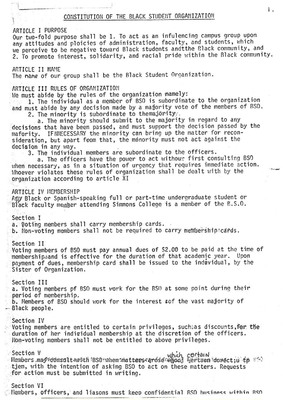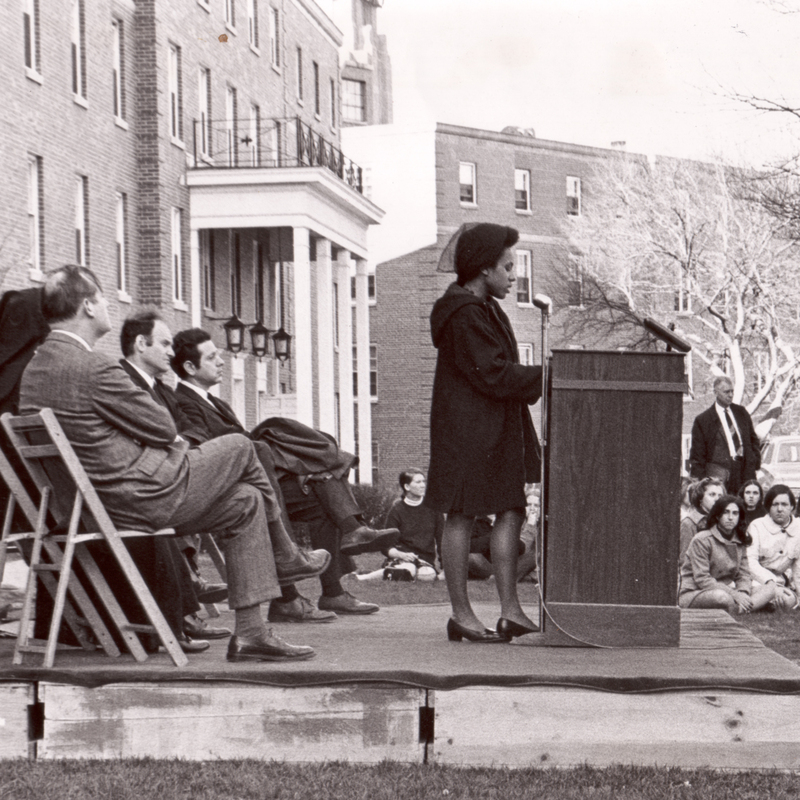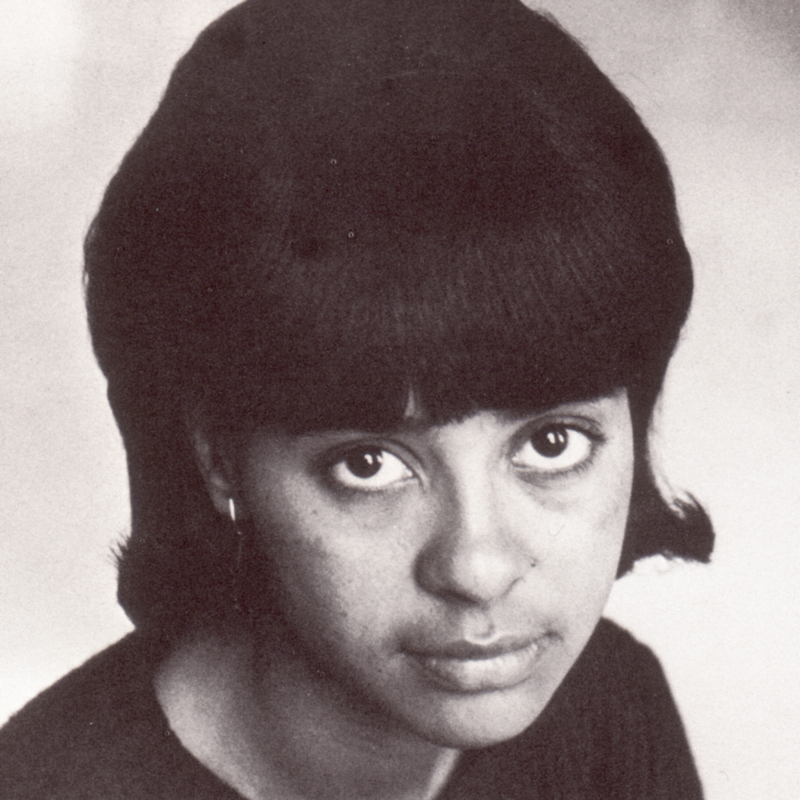SCRC and the BSO, 1965-1969
The early 1960s witnessed a significant increase in the number of Black women at Simmons. During the decade, 30 Black students graduated. This was the highest number for any decade to date, as only 22 Black students attended the College between 1951 and 1960. The influence of the Civil Rights Movement brought a new perspective to campus. The intercollegiate Civil Rights Group was founded in 1961 in response to the Northern Student Movement, a movement created to coordinate northern integrationist student activities. On the Simmons campus, money was raised for the Student Non-Violent Coordinating Committee (SNCC). Students from Simmons also worked with the group to support elementary and high school students in Roxbury.
This intercollegiate group paved the way for the formation of the Simmons Civil Rights Club (SCRC) in 1965. Made up of both Black and white students, the local, campus club intended to bring civil rights projects in Boston and at other campuses closer to Simmons. At first, SCRC members focused on volunteer community aid and brought speakers to campus to address subjects such as Black rights and urban affairs. In 1965, SCRC met with the chairman of the N.A.A.C.P., Paul Parks, to discuss inequalities in school resources allocated to predominantly Black areas of Boston. In 1967, SCRC transformed into the Black Student Organization (BSO).
According to the BSO Constitution, drafted in 1977, the purpose of the organization was two-fold. First, the organization would act to influence any attitudes and policies of administration, faculty, and students perceived to be negative toward Black students and the Black community. Second, the BSO aimed to promote interest, solidarity, and racial pride within the community.
The BSO hosted events, lectures, and community discussions during their early years. On February 13, 1968, the Black Student Organization hosted a seminar on Contemporary Afro-American Culture. While the immediate goal of this seminar was to “inform Simmons and the Boston community of black history and contemporary black trends,” the BSO also hoped “to ultimately incorporate the presentation of black culture into the Simmons curriculum.” Following the seminar, an editorial in The Simmons News noted the success of this program, having filled a noticeable racial gap in classroom study at Simmons. This seminar became a for-credit course in 1968, and the Organization views these seminars as one of the first major achievements of the BSO.
Student Highlight:
Ngina Lythcott, ’67, founded the Simmons Civil Rights Club with Faye Edwards, ’68, in October 1965. Graduating from Simmons College with a degree in Nursing, she went on to earn a M.S. in Clinical Social Work from Smith College and a M.S. and Ph.D. in Public Health from UCLA. Dr. Lythcott served as the Dean of Students at Dartmouth College, Swarthmore College, Columbia University, and Boston University, before retiring in 2011. As a public health professional, Dr. Lythcott has extensive experience in health promotion and disease prevention, working with residents of low-income communities. In 2012, she joined the Breast Cancer’s Action Board of Directors and she served on the Simmons College Board of Trustees from 2004 until 2014.


